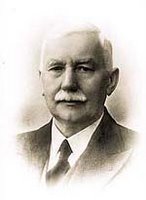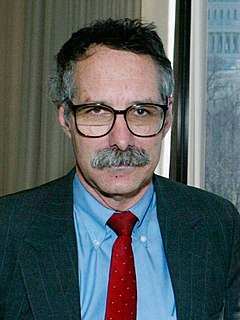A Quote by Edwin Hubbel Chapin
How much in this world is charged to chance or fortune, or veiled under a more devout name, and accorded to Providence; while, when we come to look honestly into affairs, we find it to be a debt of our own accumulation, and one which we must inevitably pay.
Related Quotes
In a world in which we are exposed to more information, more options, more philosophies, more perspectives than ever before, in which we must choose the values by which we will live (rather than unquestioningly follow some tradition for no better reason than that our own parents did), we need to be willing to stand on our own judgment and trust our own intelligence-to look at the world through our own eyes-to chart our course and think through how to achieve the future we want, to commit ourselves to continuous questioning and learning-to be, in a word, self-responsible.
The mystery of God's providence is a most sublime consideration. It is easy to let our reason run away with itself. It is at a loss when it attempts to search into the eternal decrees of election or the entangled mazes and labyrinths in which the divine providence walks. This knowledge is too wonderful for us. Man can be very confident that God exercises the most accurate providence over him and his affairs. Nothing comes to pass without our heavenly Father. No evil comes to pass without his permissive providence, and no good without his ordaining providence to his own ends.
Ought a man to be confident that he deserves his good fortune, and think much of himself when he has overcome a nation, or city, or empire; or does fortune give this as an example to the victor also of the uncertainty of human affairs, which never continue in one stay? For what time can there be for us mortals to feel confident, when our victories over others especially compel us to dread fortune, and while we are exulting, the reflection that the fatal day comes now to one, now to another, in regular succession, dashes our joy.
People could achieve much more if only they would put in more effort. You must take responsibility for your own life. Be conscious of how you use your time! Be conscious of how you listen! Be conscious of how you manage all of your affairs, so that God can look upon you and be well pleased. Seek God's honor in everything you do.
Has God decreed all things that come to pass? Then there is nothing that falls out by chance, nor are we to ascribe what we meet with either to good or ill luck and fortune. There are many events in the world which men look upon as mere accidents, yet all these come by the counsel and appointment of Heaven.
A government of our own is our natural right; and when a man seriously reflects on the precariousness of human affairs, he will become convinced, that it is infinitely wiser and safer, to form a constitution of our own in a cool deliberate manner, while we have it in our power, than to trust such an interesting event to time and chance.
We should balance the budget. If government programs are important enough, we need to pay for them with taxes or make cuts in lesser programs. We've lost that discipline entirely. It seems prudent to avoid the possibility that the people who own our debt will start to worry the U.S. won't pay. That would raise how much it would cost the U.S. to borrow, which in a national emergency, like a war or pandemic, could be critical.
There are two definitions of deflation. Most people think of it simply as prices going down. But debt deflation is what happens when people have to spend more and more of their income to carry the debts that they've run up - to pay their mortgage debt, to pay the credit card debt, to pay student loans.
Remember that accumulated knowledge, like accumulated capital, increases at compound interest: but it differs from the accumulation of capital in this; that the increase of knowledge produces a more rapid rate of progress, whilst the accumulation of capital leads to a lower rate of interest. Capital thus checks it own accumulation: knowledge thus accelerates its own advance. Each generation, therefore, to deserve comparison with its predecessor, is bound to add much more largely to the common stock than that which it immediately succeeds.






































